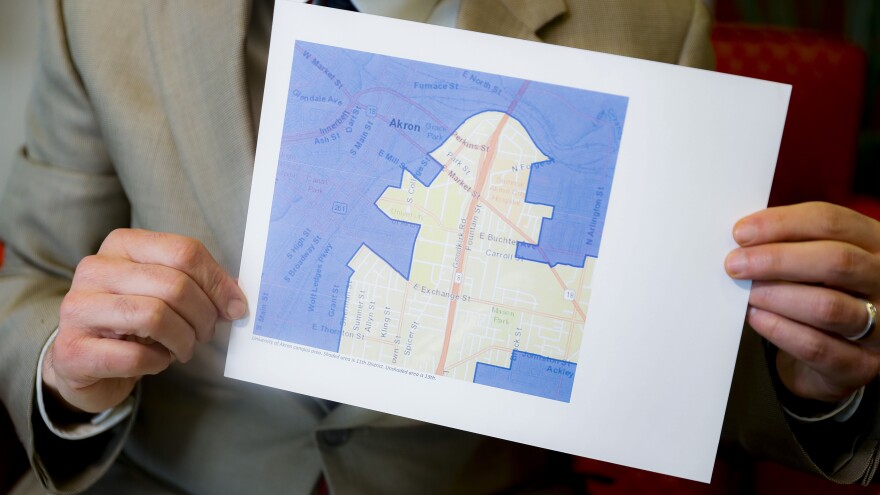The League of Women Voters of Michigan and several activist groups say they plan to file a lawsuit next week against Michigan's redistricting commission over recently approved political districts.
Attorney Mark Brewer says they'll ask Michigan's Supreme Court to order state House maps to be redrawn.
Brewer, a former state Democratic chairman, says those maps are skewed in favor of Republicans and fail to meet a constitutional obligation to achieve partisan fairness.
"This is about the rights of every voter in the state — Democrat, Republican, urban, rural, no matter where they live — they have a state constitutional right, to fair maps and that was not accomplished by this commission," Brewer said.
A voter-approved 2018 amendment to Michigan's Constitution ordered randomly selected Republican, Democratic and independent citizens to redraw Michigan’s congressional and statewide legislative districts once a decade.
When drawing the maps, commissioners are supposed to prioritize certain criteria which are ranked in order of importance. Partisan fairness is ranked fourth after other considerations like complying with the Voting Rights Act and setting geographically contiguous districts of roughly equal population.
A commission spokesman defended Michigan's maps in a statement Friday, adding that commissioners took partisan fairness into account along with higher-ranked criteria.
"As the fourth-ranked priority in the redistricting process, the commission still believes that it followed the seven-ranked redistricting criteria stated in Michigan’s Constitution for the Michigan congressional, House, and Senate maps," Communications Director Edward Woods III said.
Michigan’s redistricting commission approved its first maps late last year and is currently fielding two other lawsuits over the boundaries. One is from Republicans who argue the congressional maps don't respect local government borders or the bounds of "communities of interest," which are broadly defined as areas sharing economic or cultural similarities.
The other lawsuit is from Detroit-area activists and politicians who say Michigan's new districts disenfranchise Black voters.
Brewer declined to specify exactly how many groups will join the suit, but said Friday the plaintiffs will include advocacy organizations like Detroit Action, the National Network for Arab American Communities and Asian & Pacific Islander American Vote.

